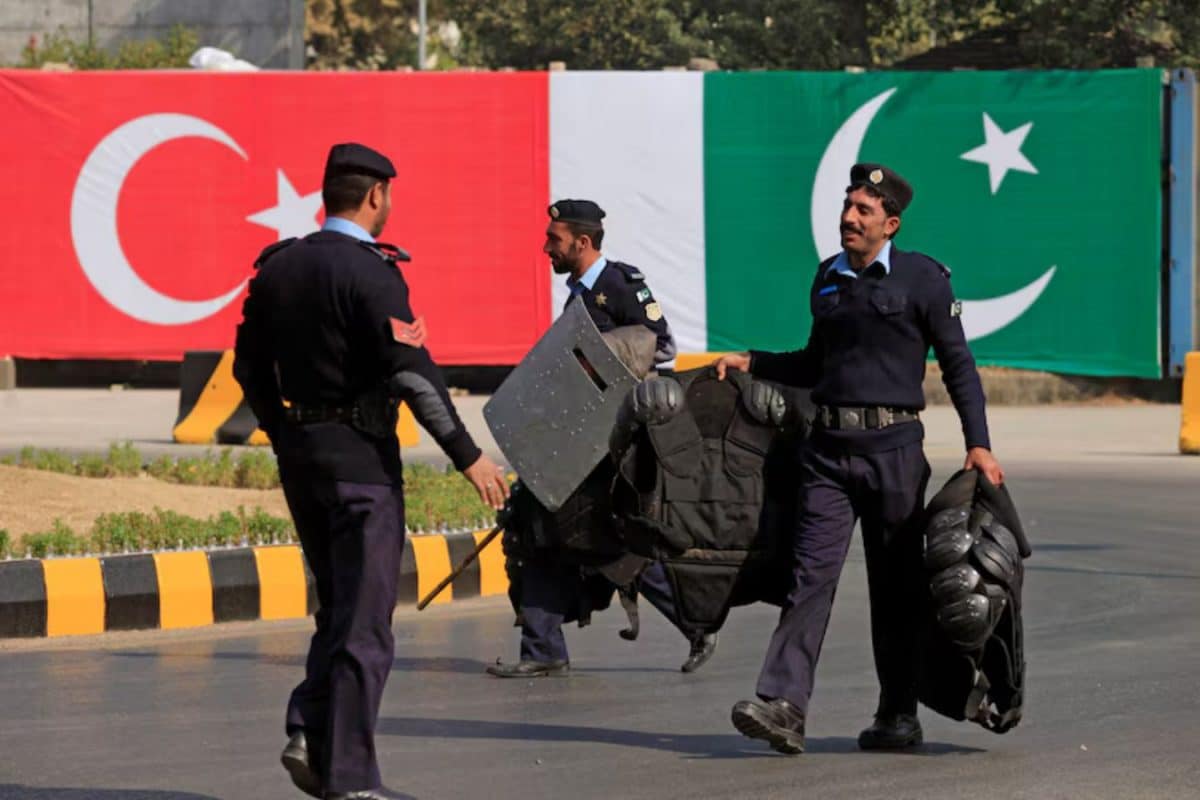

Turkish President Recep Tayyip Erdoğan is scheduled to host Pakistani Prime Minister Shehbaz Sharif in Istanbul today, May 25, 2025, for high-level talks. This meeting occurs against a backdrop of escalating diplomatic tensions between India and Turkey, particularly following India's boycott of Turkish goods and services after Operation Sindoor, India's counter-terrorism operation.
According to Erdoğan's communications chief, Fahrettin Altun, the leaders will discuss bilateral relations, regional security, and the fight against terrorism. Sharif's visit to Turkey is the first leg of a four-nation tour to express gratitude to Pakistan's allies for their support during the recent conflict with India. He will also visit Azerbaijan, Iran, and Tajikistan.
The India-Turkey relationship has been strained by Turkey's vocal support for Pakistan, especially after the deadly terrorist attack in Pahalgam and India's subsequent counter-terror mission. Turkey was the only West Asian nation to openly criticize Operation Sindoor and back Pakistan, deepening the divide between Ankara and New Delhi. This has led to a public backlash in India, with widespread boycott campaigns affecting tourism, trade, education, and aviation.
India's reaction has been multifaceted. Major Indian travel platforms have suspended Turkish promotions, and traders have begun rejecting Turkish goods. The Indian civil aviation ministry revoked the security clearance of a Turkish ground-handling company, citing national security concerns. Furthermore, India is reportedly deepening its defense relationship with Turkey's regional rivals, such as Armenia, Cyprus, and Greece.
Turkey, on the other hand, insists that its relationship with Pakistan is based on deep-rooted historical and ideological connections, stemming from a shared Islamic identity. Since Erdoğan's rise to power in 2003, the two countries have grown closer, with shared views on political Islam and opposition to secular Arab regimes. Erdoğan has visited Pakistan numerous times, and the two countries have strengthened their defense ties, with Turkey supplying military equipment to Pakistan.
Geopolitically, Turkey is positioning itself as a counterweight to Saudi and Emirati dominance in the Muslim world and has been cultivating closer ties with non-Gulf nations like Pakistan and Malaysia.
Despite the current tensions, economic ties between India and Turkey have been growing. In the fiscal year 2023-24, bilateral trade stood at $10.43 billion, with India's exports to Turkey at $6.65 billion and imports at $3.78 billion. However, recent diplomatic tensions have led to a decline in Turkish exports to India.
While the current crisis is steeped in emotion, some believe it is not beyond repair. However, both countries will have to work deliberately to untangle the situation. Some analysts suggest that Turkey's leadership must recalibrate its public stance on Kashmir and adopt a more balanced position, acknowledging India's legitimate security concerns. It remains to be seen whether the meeting between Erdoğan and Sharif will address these concerns and pave the way for improved relations between India and Turkey.